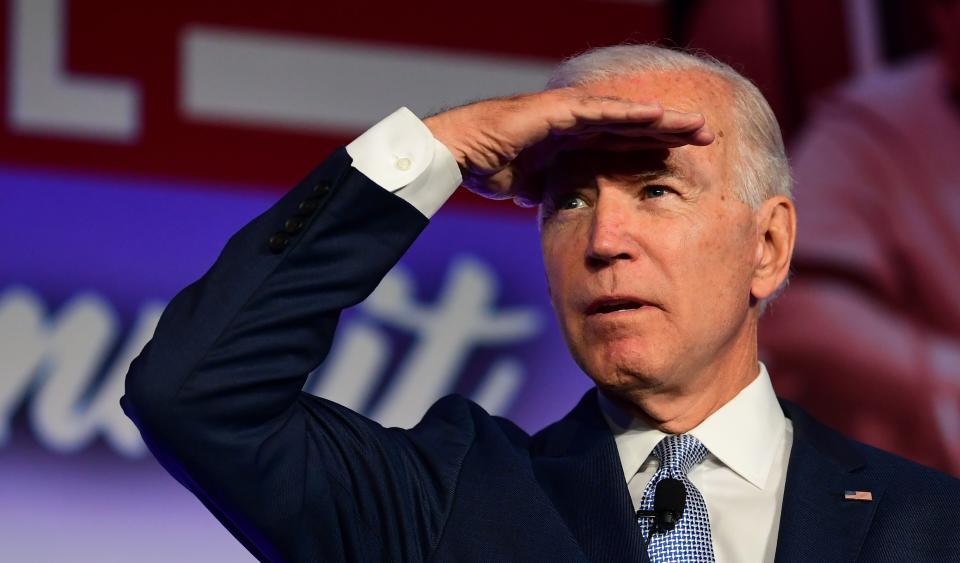Biden Releases Plan To Make College More Affordable
The 2020 presidential field is full of candidates with ambitious plans for higher education. Sen. Bernie Sanders (I-Vt.) wants to erase all student debt and make public universities tuition-free. Sen. Elizabeth Warren (D-Ma.) wants to eliminate tuition at public universities and wipe out most student loan debt.
Former Vice President Joe Biden’s plan, released Tuesday morning, aims neither to make all public universities free nor eliminate student debt. But his campaign insists his plan is just as big.
“We reject any premise this plan is not equally bold as those plans,” said a senior campaign official on the phone with reporters. “The Biden plan reflects the vice president’s and Dr. [Jill] Biden’s deep commitment to making sure every child in this country can pursue a bachelor’s degree or community college.”
Biden’s plan focuses on improving access to community college and making all college more affordable for needy students. The Biden family has a strong connection to community college: His wife, Jill, who has a doctorate in education, has spent much of her career teaching in one.
“They work so hard and ask for only one thing in return: opportunity,” Jill Biden said on the call.

Through legislation, Joe Biden aims to make community college tuition-free for all students for up to two years, with the federal government covering 75% of the cost and states covering the rest. Beyond tuition, qualifying students could use Pell grants and state aid to cover the rest of their expenses, according to the plan.
Much of Biden’s vision for higher education builds on what he started with former President Barack Obama, according to campaign officials. The Obama administration proposed tuition-free community college in 2015.
However, Biden’s plan also includes a number of measures that would also help students complete their degrees. He proposes a grant that would help community colleges create an emergency fund for students undergoing unexpected financial hardships.
The plan also includes an $8 billion investment in community college facilities.
Biden’s proposal seeks to make a dent in college debt, albeit one that is specific and targeted to individuals making below a certain amount of money.
Biden says he would double the maximum value of Pell grants ― a grant for low-income students that does not need to be repaid. Under a Biden presidency, people making less than $25,000 a year wouldn’t have to make loan repayments or accrue interest, though everyone else would have to pay 5% of their discretionary income.
In contrast, Sanders’ and Warren’s student debt plans are far more expansive. Sanders has announced his intention to cancel nearly all student loan debt, regardless of a debtors’ income. Warren would eliminate a portion of debt for every household making below $250,000.
Biden’s plan also includes major investments in historically black colleges and universities, tribal colleges and universities, and other minority-serving institutions, including $18 billion in grants and $20 billion for infrastructure.
“Student debt both exacerbates and results from [the] racial wealth gap,” according to the plan.
Love HuffPost? Become a founding member of HuffPost Plus today.
This article originally appeared on HuffPost.

